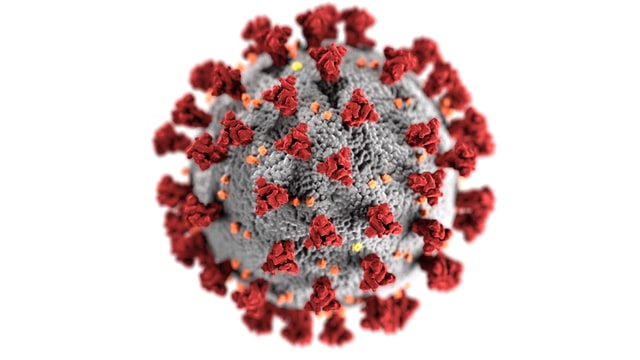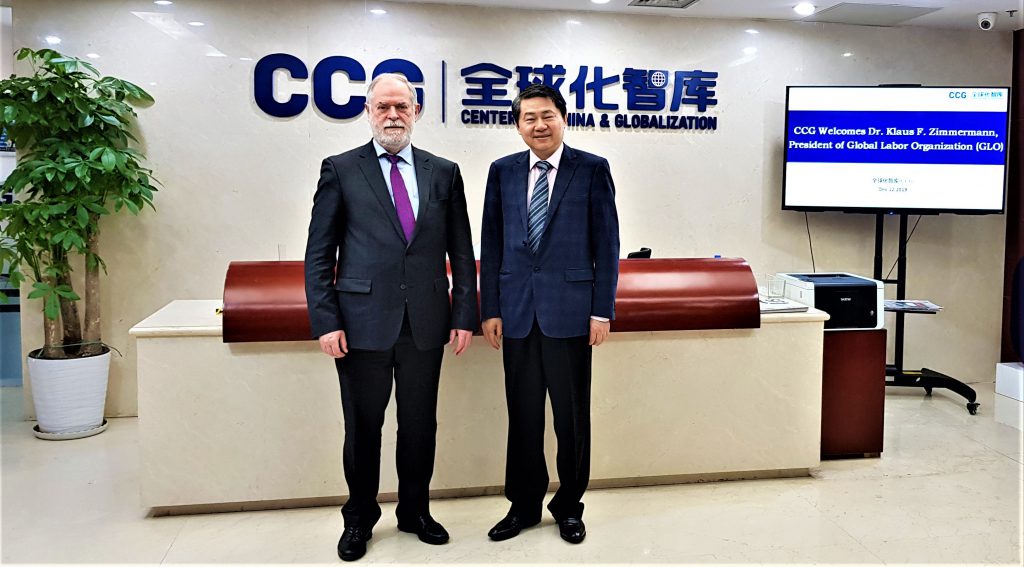The world struggles about a convincing strategy to handle the #coronavirus crisis and reflects the consequences thereafter: What are the recommendations from Beijing’s top policy advisor Henry Wang?
- The most important thing is taking decisive and comprehensive action as soon as the virus starts to spread.
- New formats of internet business, including online medical services, online education, and working at home through online apps, have grown significantly.
- The virus may rebound if we relax our vigilance.
- The pandemic reveals not the failure of globalization, but the need to innovate global governance systems and boost international cooperation.
- In the long run, the movement of labor and talent has created more benefits than problems.
GLO Fellow Huiyao (“Henry”) Wang is a Professor and President of the Center for China and Globalization (CCG), the largest non-government think tank in China. CCG and GLO are collaborating institutions.

Henry Wang 
Interview
GLO: China seems to have managed the Corona Crisis. What are the major lessons?
Huiyao Wang: I think the most important thing is taking decisive and comprehensive action as soon as the virus starts to spread. The non-pharmaceutical measures China took might seem economically damaging at first, but it is that the sacrifice gave us a better chance to control the pandemic as quickly as possible. If we had underestimated the coronavirus, the potential losses could have been far greater.
And another thing is the well-equipped internet infrastructure and the thriving internet industries that played a big role in distributing medical resources and basic supplies for people in quarantine during the coronavirus outbreak. Additionally, new formats of internet business, including online medical services, online education, and working at home through online apps, have grown significantly. These businesses helped to allow society to continue operating and lowered the economic pressure so that we could keep the economy going while employing social distancing.
GLO: Will the virus come back?
Huiyao Wang: I think there’s a chance that the virus rebounds if we relax our vigilance. Although China has made it to contain the coronavirus overall, it is too early to relax now due to the global outbreak. We can see that there are dozens of new cases appearing every day, mostly coming from other countries. The Chinese central government and local governments as well as every citizen are staying cautious and alert.
In this special time, all countries should work together and spare no effort against the virus, in line with the joint statement achieved at the G20 summit several days ago. Like President Xi Jinping said, we should build a community with shared future for mankind, since globalization has tied countries together. Discrimination and hatred will not do any good when facing the challenges brought by the virus, and other transnational challenges like climate change.
GLO: Some say the pandemic is the curse of globalism, did it go too far?
Huiyao Wang: The coronavirus indeed has caused a global crisis, however, if we believe globalization will go reverse or countries should decouple to protect themselves, then we are wrong. Coronavirus is just one of the global challenges that we are facing. Climate change, environmental degradation, WTO reforms – these challenges are all awaiting us and none of them can be overcome without international cooperation, bilaterally and multilaterally. The pandemic reveals not the failure of globalization, but the need to innovate global governance systems and boost international cooperation.
I think the G20 meeting was a good start. On the 27th, President Xi and President Trump had a phone call the day after the G20 meeting. This sent a good signal that China and the US are going to set aside the disputes and work together. Despite the talk about competition between China and the US, I believe the two countries have enough reasons to collaborate. Being rivals will do no good to either country.
GLO: How can global solidarity look like in this crisis?
Huiyao Wang: I think it failed to meet our expectations somehow at the beginning, but now after the G20, I hope countries can unite and fight against the virus together.
When the outbreak started in China, many countries donated and helped, which was significant for China to control the coronavirus domestically. However, after the coronavirus began to spread globally, global solidarity appeared vulnerable.
After the G20, the countries have presented a joint statement announcing a fund of 500 million US$ to combat the disease and other key messages about reviving the global economy. If these are carried out, I think we will walk out of the shadow cast by the pandemic.
GLO: The Coronavirus is a strike of nature against globalism: What is its future, in particular for labor migration?
Huiyao Wang: I think it is short-sighted if we blame the outbreak on labor migration, since the cause is more complex than that and we could have taken better precautions to avoid it. In the long run, the movement of labor and talent has created more benefits than problems.
I think we should improve and innovate the global governance of migration rather than go against it. Especially, we should establish an emergency mechanism to regulate transnational movement of people when an outbreak occurs like this time to minimize the impact.
*************
With Huiyao Wang spoke Klaus F. Zimmermann, GLO President.
Related GLO research:
Yun Qiu, Xi Chen & Wei Shi (2020): Impacts of Social and Economic Factors on the Transmission of Coronavirus Disease 2019 (COVID-19) in China, GLO Discussion Paper, No. 494.
See also the recent GLO – Interview with GLO Fellow Xi Chen of Yale University.

Henry Wang (right) & Klaus F. Zimmermann at the CCG Headquarter in Beijing in December 2019 during a previous visit.
Ends;

